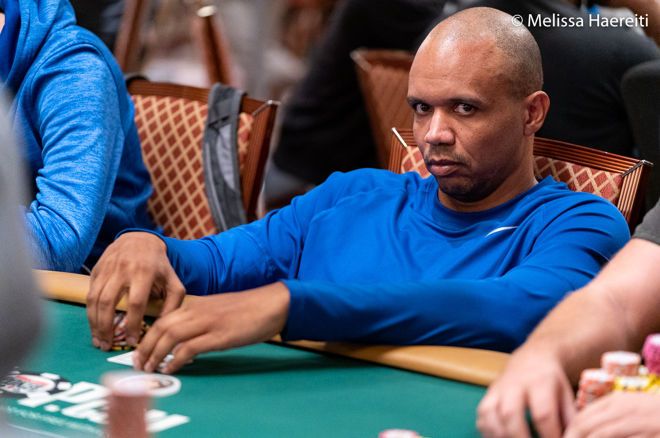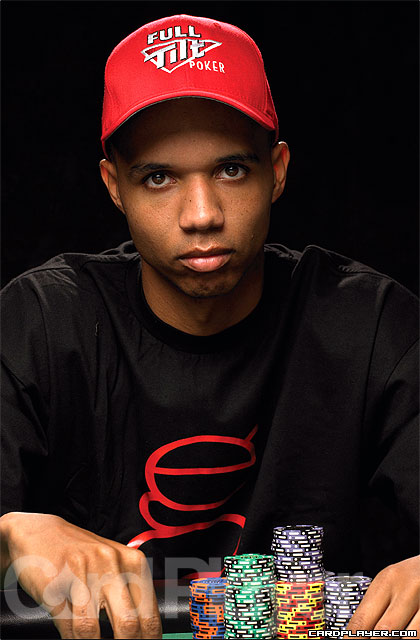- Phil Ivey Poker
- Where Is Phil Ivey Today
- Phil Ivey Poker Winnings
- Phil Ivey Poker Strategy
- Phil Ivey Poker Hands

Phil Ivey is one of the best — if not the best — poker player in history. How did he become so great? He answered that question and more in a recent interview with fellow Poker Hall of Famer Barry Greenstein.
Ivey and Greenstein have long been friends, and were both popular players during the poker boom era. They were both regulars on shows such as High Stakes Poker and Poker After Dark back in the day. And Greenstein served as a mentor for the young Ivey earlier this century.
One fine April evening 8 years ago, Phil Ivey and Cheung Yin ‘Kelly’ Sun - a friend of the poker legend with a unique talent for reading the design flaws in playing cards - started a run on. Poker legend Phil Ivey nearly won another title to add to his already incredible resume, a high roller event in Sochi. And it was thanks to a brutal bad beat for one of his opponents, although.
Phil Ivey Poker
The 10-time WSOP bracelet winner is one of the most mysterious poker players ever. Ivey isn’t flashy, nor does he showboat at the poker table or berate opponents. You rarely see much emotion out of him even when he suffers a crushing bad beat. He’s the consummate professional, something he clearly learned from Greenstein.
In the two-part interview on the YouTube channel of Poker King, the poker site Ivey promotes, he explained how he became the best in the world and how he stays mentally sharp.
Poker legends discuss mental game
In the first part of the interview, the poker pros talked about the importance of being mentally prepared to play poker. Ivey admitted that early in his career, “I neglected that for a long time.” But then said, “the last year and a half, I’ve been really focused on my mental health and I’m much more conscious, and just living a healthy lifestyle.”
The poker superstar’s current routine, he says, includes yoga, meditation, and working out. He also wants “to be of help to other people.” Ivey admits when he was just coming up as a poker pro, he overvalued money.
“I don’t come from money,” he said. “So, when I was younger, all I thought about was making money. And I made money, and I thought that if I made a certain amount of money, and I had material things, that would make me happy. So, what happens is when you get these things, you realize at some point, well wait a second, I’m still not happy. Even though I was successful, I never actually felt successful.”
Ivey certainly is a successful poker player, perhaps more so than anyone ever. He’s tied for second all-time behind Phil Hellmuth with 10 WSOP bracelets, has $30 million in live tournament cashes, and his former Full Tilt Poker account profited nearly $21 million — the most in history. On top of that, he’s long crushed some of the highest stakes cash games in the world, especially in Macau, where he now plays regularly.
Ivey on his incredible success in poker
In the second part of the interview, Greenstein praises his friend and fellow poker pro. The former PokerStars pro told Ivey, “I think a really important component of being an intelligent person is an interest in learning things. And that’s something you’ve always had.”
“Staying interested and wanting to educate yourself and learn new things has really been a big part of my life,” Ivey responded. “But the problem is that once I get into something, I really get into it.”

Phil, now 43, has been into poker since he was young. Before turning 21, he played in Atlantic City using a fake ID under the name “Jerome,” and would often sleep below an overpass near the casinos when he wasn’t inside playing poker. Hence, his old nickname, “No Home Jerome.”
By the time Ivey was of legal age, he was already a feared pro. At age 26, in 2003, he was among the best in the game. During the poker boom era, nearly every poker expert considered him the best. He is the type of player you don’t want at your table. And his rise to greatness wasn’t due to luck nor was it a fluke.
“For me, I was very intense,” Ivey said of his ability to crush it on the felt. “I paid attention to every single detail of everything that was going on in the game. Being focused and trying really hard, I didn’t realize until I went through a phase where I wasn’t trying really hard, I didn’t realize how hard I tried.”

But how did he consistently make the right reads, as we’ve seen so many times on TV?
“I just knew it intuitively.”
It wasn’t just intuition that made Ivey so great at poker, according to Barry Greenstein. He suggests Ivey’s upbringing also had something to do with it.

Where Is Phil Ivey Today
“The way I’ve always looked at you when I think of it is you have the toughness from your dad’s side, and the compassion and the ability to understand people from your mother’s side,” Greenstein told his friend. “That made you kind of a perfect person to be a good poker player.”
Ivey said his family wasn’t supportive of his desire to become a poker pro early in his career. But he was so driven and loved the game so much that he didn’t care what anyone else thought.
“The more people told me I couldn’t do it, the more I just wanted to prove them wrong.”
He certainly has proved the doubters wrong.
Featured image source: Flickr
Financial terms not disclosed
Poker Hall of Famer Phil Ivey has come to a settlement with Borgata Casino in their long-standing legal battle. While terms have not been made public, what is known is that the July 2 filing in the U.S. Court of Appeals for the Third Circuit stated that the two parties “now reached a settlement.”
The filing also noted that after oral arguments on September 17, 2019, the case was sent to the Third Circuit’s Appellate Mediation Program.
Though Ivey and Borgata have agreed to terms, the settlement is still contingent on the District Court vacating “certain orders and decisions”. It does appear, however, that the case is finally about to come to an end.
Phil Ivey Poker Winnings
“Edge sorting” strategy netted Ivey millions
The case dates back to 2012, when Ivey and his playing partner, “Kelly” Cheung Yin Sun, won $9.6m playing baccarat at the Borgata. Ivey told the Atlantic City casino that he would play for high stakes – up to $100,000 a hand – and pre-wire money if the facility would accept several conditions for the game. Among the requests were the use of specific Gemaco cards, an automatic card shuffler, and having a Mandarin-speaking dealer manning the game.
Borgata accepted, and Ivey and Sun racked up the winnings over four sessions. They made the requests because they knew that the Gemaco cards were slightly miscut, leading to an asymmetrical pattern on the back. The miscut was very hard to see, but Sun had a sharp eye and could tell the difference in size between the design pattern on one edge compared to the pattern on the opposite edge.
This “edge sorting” technique shifted the odds dramatically in Ivey and Sun’s favor.
When a card that could benefit the player was revealed, Sun would tell the dealer (in Mandarin) to rotate it 180 degrees before putting it in the discard pile. The automatic card shuffler kept that orientation when shuffling the deck. As a result, Sun was able to tell if the top card of the deck each hand was “good” or “bad” because of the miscut pattern. This “edge sorting” technique shifted the odds dramatically in Ivey and Sun’s favor.
Six years of legal wrangling
Borgata sued Ivey and Sun in 2014 for alleged cheating, looking to get the $9.6m back plus profit Ivey made at other table games using those winnings. In December 2016, US District Court Judge Noel L. Hillman ruled in the casino’s favor, ordering the defendants to repay $10.13m.
The casino was able to garnish his winnings at the 2019 World Series of Poker
Ivey never paid back the money and the two sides went back and forth with different filings, suits, and countersuits. Despite being in New Jersey, Borgata did get approval last year to go after Ivey’s assets in Nevada, but there wasn’t much there, as he had moved most of his money offshore. The casino was able to garnish his winnings at the 2019 World Series of Poker, though.
Phil Ivey Poker Strategy

Phil Ivey Poker Hands
As to why they finally came to a settlement agreement, nobody knows for sure. Legal experts said that Ivey’s legal team presented a solid appeals case last year, countering Borgata’s argument that Ivey “marked” the cards and therefore cheated. The best guess in the legal community is that the Borgata casino was afraid it would lose the appeal and that the costs were adding up for both sides, making a settlement the most prudent course of action.